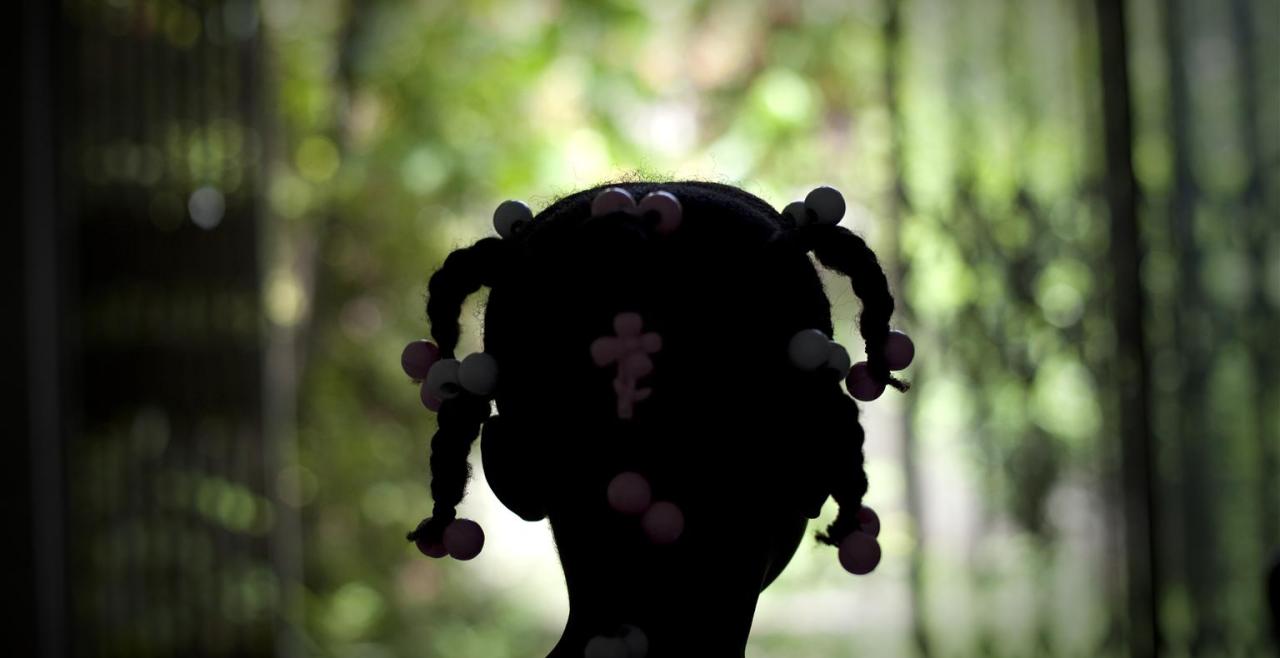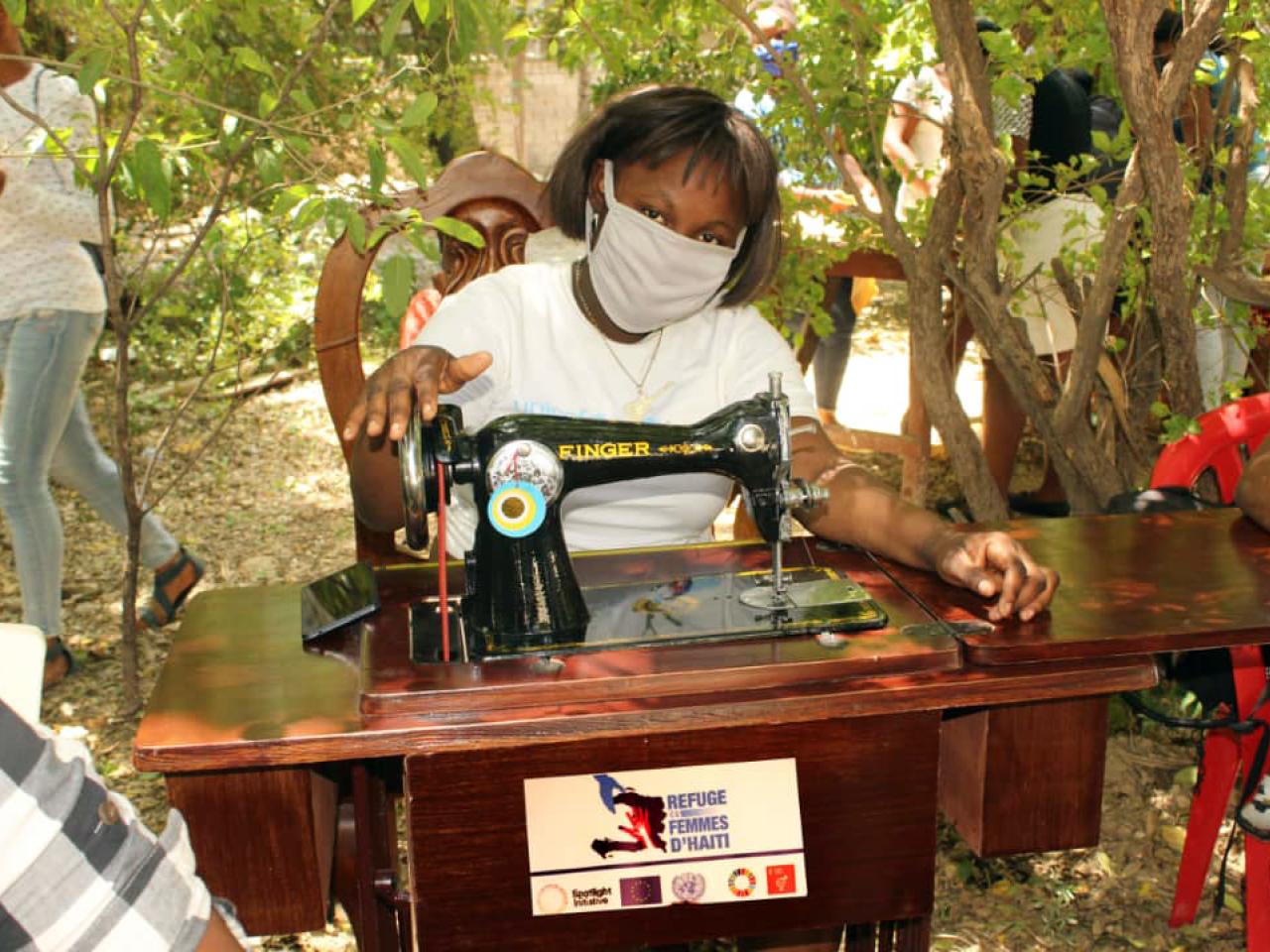From domestic servant to student: supporting young Haitians to leave violence

PORT-AU-PRINCE, Haiti - Magda*, 11, was only two years old when her mother died. Her father, a mason and small trader, did his best to support the family but it wasn’t enough—Magda was sent to live with an aunt when her father could no longer afford to take care of her.
Though her aunt treated her well, she too was forced to place Magda in alternative care as there weren’t enough resources to go around. It was in this new “foster family” that Magda was abused.
"Going to school will help me lift my family out of poverty and help me become a doctor one day." - Magda*, 11
Treated as a live-in servant by the family that was supposed to care for her, Magda was forced to work long hours cleaning the house and was often accused of not doing enough. When she failed to "meet standards", she was physically and verbally punished.
Unfortunately, Magda’s situation is not uncommon. More than 200,000 Haitian children are living in domestic servitude, according to UNICEF, most of them girls under the age of 15. Though children and their parents are promised better living conditions, food, education and healthcare, these children are frequently mistreated and are often vulnerable to sexual exploitation.
GHESKIO, a Spotlight Initiative-supported organization that provides healthcare and social and economic support to Haitians living in extreme poverty, heard about Magda through their community outreach activities. "We were able to intervene and get her to talk about what she was going through,” says Johanne Landrin, a clinical psychologist in charge of the Support Programme for Teens and Young Girls.
After building a relationship with the team, Magda agreed to let Ms. Landrin speak to her father about her situation. Her father retrieved her from the family and today, Magda lives with another aunt. “My life is good now,” she says. “GHESKIO helped me get out of this person’s house who was abusing me and right now my life is better.”
“The objective of the support programme is to help girls in vulnerable situations discuss issues that concern them." - Johanne Landrin, GHESKIO Support Programme for Teens and Young Girls
GHESKIO support groups also gave Magda access to counselling, which has helped her come to terms with the violence she suffered. “The objective of the support programme is to help girls in vulnerable situations discuss issues that concern them," says Ms. Landrin.
Though Magda didn’t attend school during her eight years of domestic servitude, she is now on the verge of fulfilling that dream. GHESKIO has referred her to a school scholarship programme run by UNFPA in Haiti.
“I would like to thank the people who made it possible for me to receive this scholarship, because now I am going to school for the first time,” says Magda. "Going to school will help me lift my family out of poverty and help me become a doctor one day."
Spotlight Initiative is working with GHESKIO to establish a number of “safe spaces” in Haiti—rooms within community organizations where women and girls who are experiencing violence can seek confidential advice and support. The partnership will also strengthen the gender-based violence (GBV) unit of GHESKIO, which currently assists several hundred survivors of violence.
The Spotlight Initiative was launched in Haiti in 2020 and supports national efforts to address GBV through the National Plan to Combat Violence Against Women and Girls 2017-2027. Under the supervision of the Office of the United Nations Resident Coordinator in Haiti, the programme is co-financed by the European Union and the United Nations and is carried out under the leadership of Haitian authorities with technical support from UN agencies.
*Name has been changed to protect the survivor's identity.

